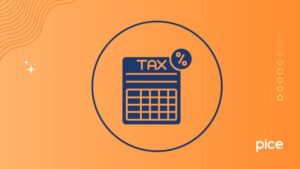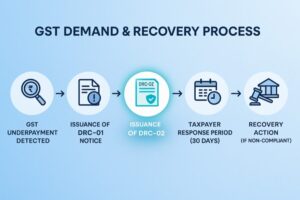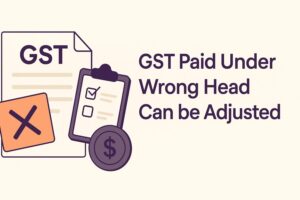What are the Benefits of Input Tax Credits Under GST?
- 1 Sep 24
- 11 mins
What are the Benefits of Input Tax Credits Under GST?
Key Takeaways
- Definition of ITC: Input Tax Credit (ITC) allows businesses to deduct tax paid on purchases from the tax due on sales, reducing overall tax liability.
- Eligibility: All GST-registered taxpayers, including suppliers, manufacturers, and e-commerce operators, can claim ITC under specific conditions.
- Benefits: ITC helps in saving money, improving cash flow, optimizing resource allocation, and avoiding double taxation.
- Special Cases: ITC can be claimed during business transfers, job work, and on capital goods used for taxable supplies.
- Compliance: Maintaining accurate financial records, purchasing from GST-registered suppliers, and timely filing of GST returns are crucial for maximizing ITC benefits.
With the advent of the Goods and Services Tax, the government introduced various unique concepts associated with it that can simplify the lives of taxpayers. One such concept is the Input Tax Credit (ITC) which notably minimises the GST liability that businesses have to pay upon the sale of goods. Almost every GST-registered person can claim ITC and enjoy the benefits that come with it. Read on to learn about the definition, eligibility and key benefits of input tax credit in detail to maximise their advantages.
What Is ITC in GST?

Input Tax Credit means that you can deduct the tax that you have paid during the purchase of a product or raw materials from the tax that you have to pay during the sale of the improved version of the product. This is because as per GST laws, during the purchase of a product, you will need to pay a certain amount as tax on it. Consequently, when you sell the same product, you will have to pay a tax on the amount for which you will have to sell the product.
GST Input Tax Credit
The ITC is designed to help business owners save adequately on taxes paid under the GST Act during an outward taxable supply of finished products. The different people who can claim ITC include suppliers, manufacturers, e-commerce operators and so on. If you are one of them, you can claim a refund of your taxes upon selling the manufactured goods.
This mechanism of tax collection encourages businesses to comply with GST laws and protects them from double taxation.
Following are some special cases in which a registered person under GST can claim ITC:
- ITC on Business Transfers
This type of ITC is applicable during mergers, amalgamations and transfers of businesses. When transferring your company in someone else’s name, the ITC that you were eligible for will be transferred to the person’s name who is buying the company.
- ITC on Job Work
If a manufacturer sends the goods to a job worker for further processing of the products, they can claim a credit on the purchase of the goods sent. The manufacturer can send the goods to the job worker from the place of business or directly from the place of the supplier. However, the manufacturer must receive the goods back from the job worker within one year from the date on which the product is sent.
- ITC for Capital Goods
Capital goods refer to those products that businesses solely use for manufacturing their products that count as a taxable supply. A registered person under GST can claim ITC on the cost of capital goods upon their purchase. However, they will not be eligible to raise the claim in case the capital goods are used for non-business purposes or they are involved in the production of exempt supplies.
Nonetheless, if they are using capital goods for both business and non-business (personal) purposes, they can claim a tax on the portion of the cost of capital goods used in business operations. In addition, business owners will not be eligible for ITC in case they have already claimed depreciation on the tax component of capital goods.
- ITC Provided by ISD
An Input Service Distributor (ISD) is responsible for collecting ITC on all the purchases that different branches of the company make for different types types of taxes like CGST, IGST & SGST. The head office or a branch office of the company can act as an ISD.
Eligibility Criteria for Taking Input Tax Credit Under GST

All GST-registered taxpayers are eligible to claim Input Tax Credit on their inward supplies of goods and services. However, they need to fulfil certain conditions as outlined under the GST Act:
- The business person taking the Input Tax Credit must possess all the necessary tax invoices.
- You can claim the ITC only after receiving the goods or services, even when there is a difference in the shipping and billing address.
- You should file the GST tax returns before raising a claim for Input Tax Credit.
- The supplier must pay all the necessary taxes applicable to the government.
- You will have to submit the necessary GST return to claim the Input Tax Credit.
- In case you receive your purchases in lots, you will need to apply for Input Tax Credit only after you have received the final lot.
- Make sure that you complete the payment of your purchases with your suppliers within 180 days from the issue of the invoice. Otherwise, it can increase your output tax liability.
Additionally, you must note that there are certain items on which you cannot claim Input Tax Credit. These ineligible Input Tax Credit items are listed under Section 17(5) of the CGST Act and they are usually termed as blocked credits. They usually include goods or services used for non-business purposes, services on which ITC is not available, and exempt supplies.
Documents for Claiming ITC
Regular taxpayers should note that when claiming ITC on their transactions, they will have to furnish certain crucial documents. These include:
- Debit notes that your supplier has given you
- Valid tax invoice of your purchases issued by your supplier
- Invoices that you might receive under specific circumstances like the bill of supply, when a reverse charge is applicable on your purchases, or if the amount of your purchase is less than ₹200.
- A bill of entry
- Credit notes that the Input Service Distributor (ISD) issues in accordance with GST laws
- Bill of supply that the goods or service provider issues
The tax officers upon receiving your ITC request will verify all the documents submitted and accordingly approve or reject it.
Uses of ITC
Once you receive approval for your ITC claim, you can use the money for a variety of purposes. These are as follows:
- Input Tax Credit leads to the reduction of the overall tax burden for businesses as well as individuals.
- ITC offers a continuous flow of credit within the GST regime.
- Input Tax Credit bestows several benefits when claimed on capital goods.
The benefits associated with the Input Tax Credit make it advantageous for GST-registered taxpayers to claim it.
Benefits of Input Tax Credit
The advantages that you can get upon availing Input Tax Credit are as follows:
- Helps Save Money
Claiming ITC on the GST such as SGST, IGST & CGST that you are paying on a particular product allows you to save money that you otherwise pay as taxes. Thus, the overall taxes involved in the transaction of a product are reduced significantly.
GST ITC lets you, as a business person, pay GST only on the prices that you pay upon adding value to the end product or service. Thus, you can save the reduced amount and use it to fund various operational needs of your venture.
- Streamlines Cash Flow
ITC on GST also allows you to improve cash inflow for your venture, such that you can get adequate working capital to fund daily operations. This is because you can claim ITC on the purchase of all the capital goods that are extremely important for manufacturing products.
So, if you own a business that involves large capital investments, the money received from GST ITC can offer you immense financial support. This financial assistance helps you make strategic decisions to get a competitive advantage and thrive in the market.
- Optimises Resource Allocation
ITC associated with capital asset purchases also helps ventures in properly optimising resource allocation. Doing so ensures operational efficiencies for companies, helping them stay ahead of their competitors.
Additionally, it also helps firms to align with long-term capital gains by optimising the allocation of their resources as per the dynamic market conditions. These steps help a company to stay responsive to the dynamic market demands and maximise profits.
- Avoids Double Taxation
The availability of ITC GST saves business owners from paying dual taxes on the same product. This implies you will have to pay taxes on the value added to the product or service when selling it to your customer and not on the entire product.
For example, if you purchase a product at ₹10,000 and 18% GST, you will need to pay ₹1,800 as tax. Next, if you sell it at ₹20,000, you will have to pay ₹36,000 as tax. However, with ITC, you will need to pay only ₹18,000 (₹36,000 – ₹18,000) as tax.
Additionally, you can take the following measures to maximise your benefits from ITC:
- Make sure that all your financial records are accurate and contain details of all your purchases and the GST paid towards it.
- Make sure that the vendors from whom you are purchasing the raw materials are GST-registered suppliers so that you can easily claim ITC on the purchased goods.
- You must be well-versed in the rules associated with GST to know if ITC can be availed of the product that you are claiming.
- Try always to submit your GST returns within the stipulated time so that you do not have to pay penalties.
To ensure that you do not miss out on the due dates for filing GST returns and claiming ITC, you can set reminders on your smartphone.
Due Date for Taking ITC

As per Section 39 of the Income Tax Act, a GST-registered person must furnish their returns within the stipulated tax period to raise an ITC claim. They must either claim their ITC by 30th November or on the date of filing the annual return, whichever is earlier. Usually, the claim process of ITC is easy and can be done online.
To avoid missing out on the ITC claim, organisations must keep a proper record of the invoices and transactions. Doing so helps them reconcile their GST on time leading to the claiming of Input Tax Credit within the stipulated period.
Conclusion
Now that you are aware of the definition, eligibility and key benefits of input tax credit, make sure to claim it at the right time. Additionally, make sure to keep proper records of your finances, valid tax invoices, credit notes, debit notes etc. such that your claim gets easily approved.
💡If you want to pay your GST with Credit Card, then download Pice Business Payment App. Pice is the one stop app for paying all your business expenses.
 By
By 

















